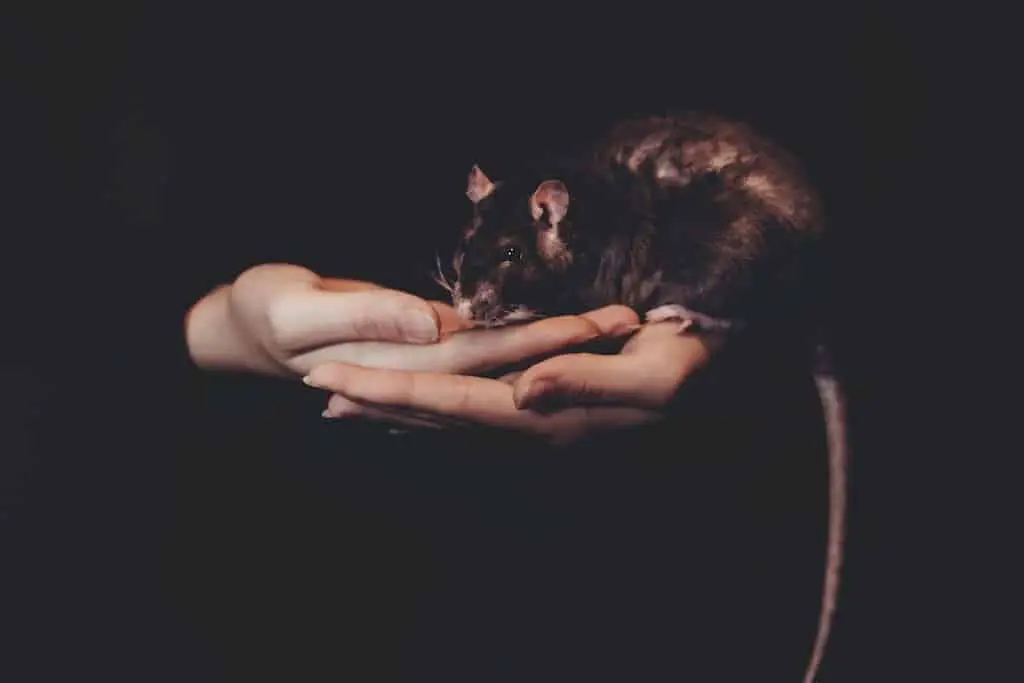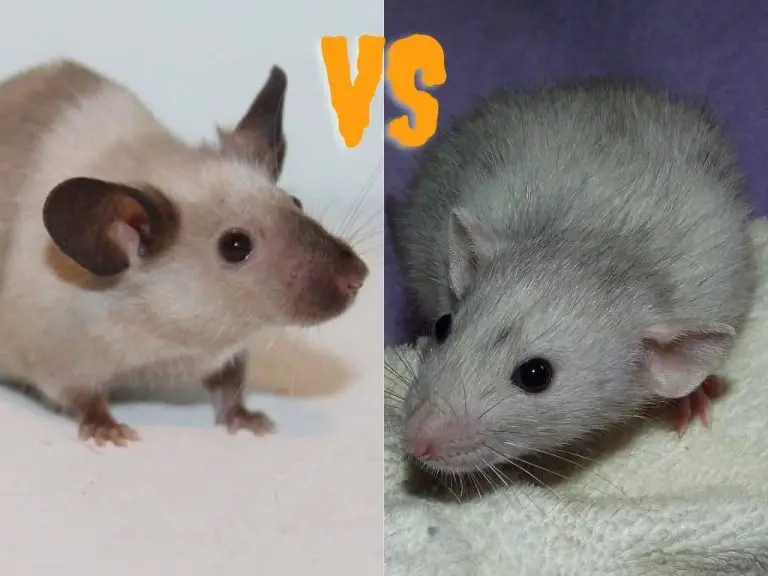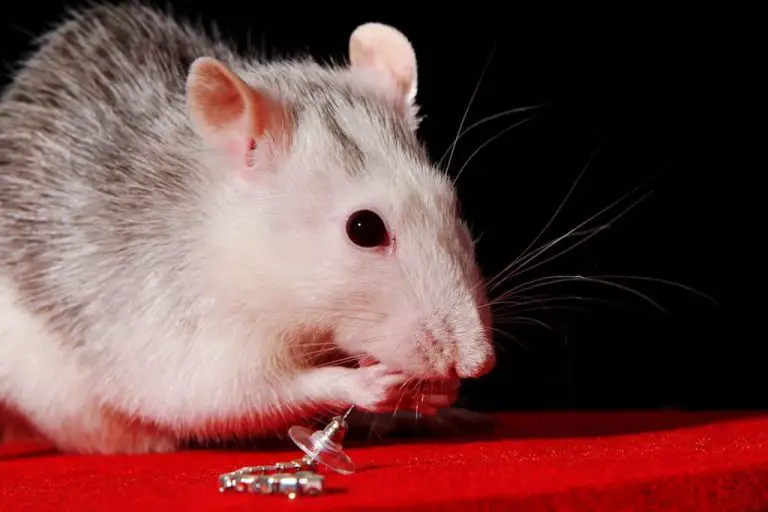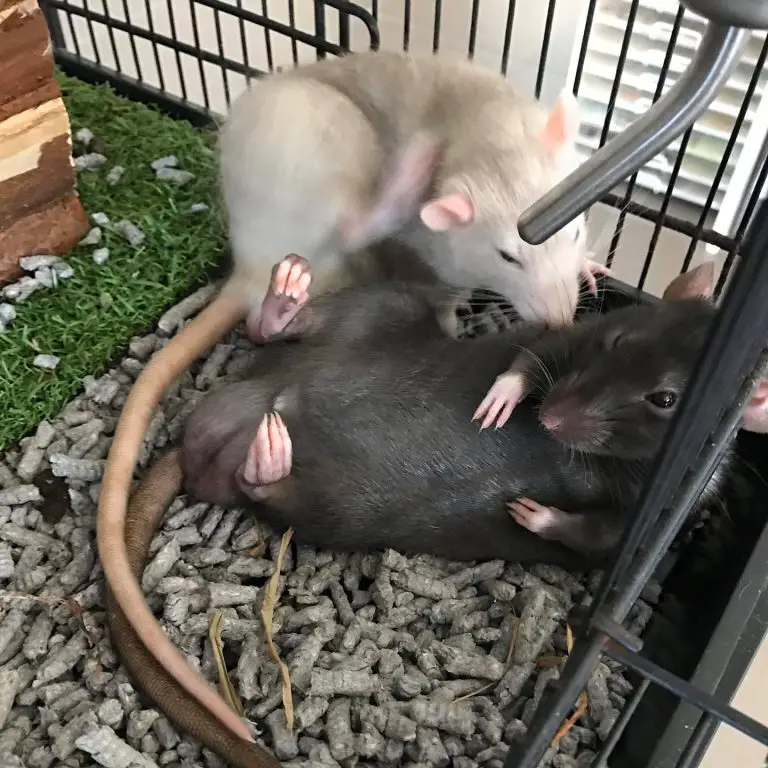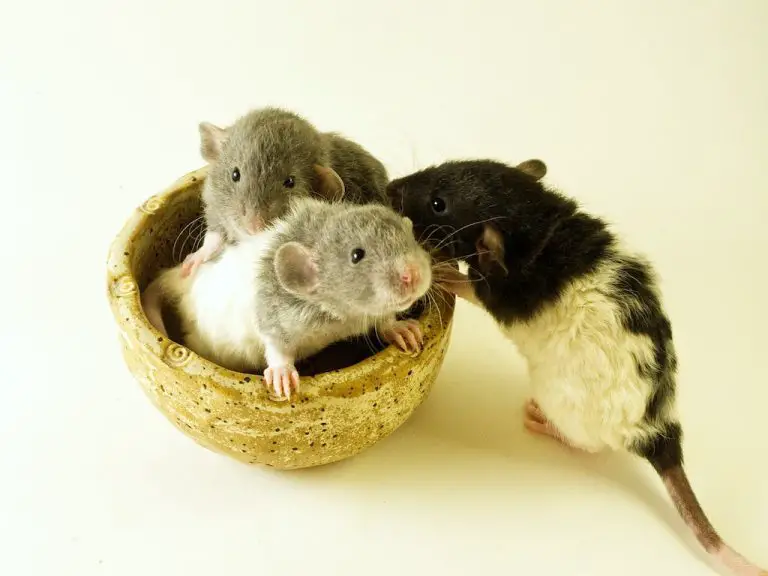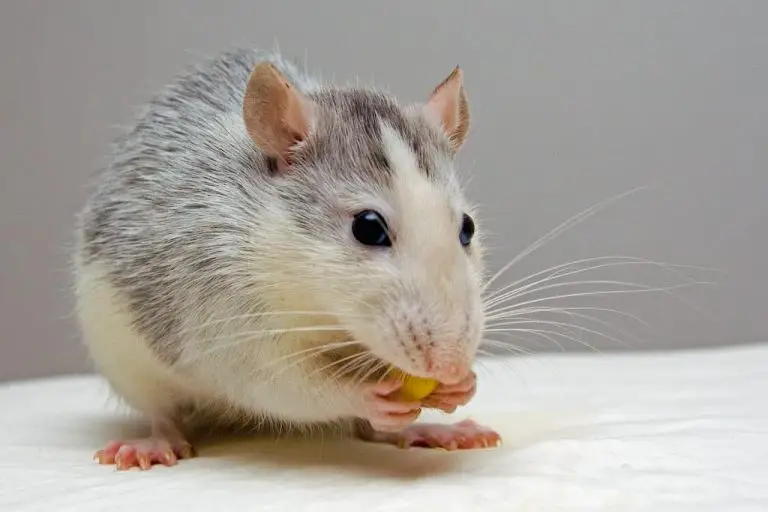Do Pet Rats Bite?
To some, the term “pet rat” might seem like an oxymoron, however, they actually make great little companions. They are extremely intelligent, loyal, and clean. You may have some concerns though, namely if they tend to bite their owners.
Pet rats do bite, regardless of how domesticated they are. This is the result of feeling scared or threatened, however, and not a sign of knee-jerk aggression. They may bite a stranger if they are protecting newborns, injured, or accidentally confuse the smell of food on your hands for a snack.
You can prevent this sort of behavior with relative ease by interacting with a pet rat in an affectionate and controlled manner. As long as a pet rat does not feel scared or threatened, it is highly unlikely that a pet rat will intentionally bite you. Check out some of my fool-proof tips to make sure your pet rat stays cuddly and your friends keep all of their digits.
Pet Rats Bite, But Only When They Have To
Rats do bite, but only under certain conditions. By nature, a rat is very empathetic and protective. You should always do your research before taking on the responsibility of an animal, no matter what the species is. Understand that just about any domestic pet will show signs of aggression depending on the circumstance. Your pet rat may bite you or someone else if:
- They feel threatened, or they are hurt
- They are protecting their young
- They smell food on your hands and assume that it is actually their food they are smelling
Also, take into consideration how you feed your pet rat.
For example, if you typically feed your rat through the bars of its cage and you poke your finger in to give food, then it may confuse your finger for a snack. Ultimately, your pet rat most likely will not bite you as long as you are careful and considerate of its space or how it is feeling.
Pet Rats Bite Out of Fear
As with most pets, taking one by surprise could end up putting you in a bad spot. Rats are some of the most playful, loyal, intelligent companions out there and they love interacting with their owners on a regular basis. This intelligence is a wide spectrum and being able to feel so many emotions does include feelings of loneliness or fear. It is important when handling your pet rat that you do not do anything to scare it.
Never aggressively grab your pet rat, suddenly pick it up while it is sleeping, or tease it with food or toys. These actions will cause a pet rat to feel threatened and potentially bite you out of self-defense. They are a lot like people in that regard. This can quickly lead to a pet rat to be aggressive back towards you, which can lead to it biting you.
How would you feel if someone was treating you like that? I think you can understand a pet rat better when given this line of questioning. You should take emotions into account when caring for your pet rat.
Pet rats want to be loved by their owners and crave affection. They want to play with you and can learn all kinds of fun tricks. When feeding, make sure your pet rat knows you are feeding it and make sure you place the food in front of them instead of through the bars of its cage. Same goes for taking it out of its cage in general, just be gentle. It should go without saying, but if any children playing with your rat should be supervised.
Rats Are as Protective as They Are Loyal
It may surprise you, but pet rats are immeasurably loyal to their owners or another rat that may share a cage with them. This includes when they have young of their own. It is paramount that you make sure you are as gentle as possible with your rat if it is parenting. Do not under any circumstances outside of an emergency frantically grab, touch, or get in the way of your rat while it is tending to its babies.
Your rat will probably lash out as it does anything in its power to protect its kin.
- Just be patient and do not do anything that would make your rat feel as though you are trying to take it away from its young
- Do not be aggressive or threaten a pet rat because they will bite in response, especially when they are protecting their young
A new rat mother will not want any help with tending to her newborns. It is important that you respect that. Personally, I have found that letting nature run its course is usually the best-case scenario. I have also found that sometimes intervention is necessary in the case of some of the babies not making it.
You can carefully move the mother or otherwise keep her busy and check the newborns with a stick or something similar to check for any irregularities. Always consult with a licensed veterinarian before you do anything and do not under any circumstances do anything unless you are absolutely positive it is the correct course of action. The mother will clean her young and feed them accordingly, you can also help with their diet.
Rats Love Snacks
Your pet rat is smart, but it is also hungry. They have great senses, including smell. It is imperative that you wash your hands before handling your pet rat as to not confuse it. If you typically hand feed your rat or otherwise feed it through the bars of its cage, there is a chance that it will smell your own lunch on your fingers and try to sneak a bite. Albeit an honest mistake, it is one that every pet rat has made at least once.
You can easily avoid this by washing your hands before you tend to your rat, make a conscious effort not to feed it through the bars of the cage, or designating an area to feed to your rat and training it to only eat there. Obviously a combination of the three is the best way to go about it and I will bet almost anything that you will never have a problem.
I should also remind you how smart rats are. They will remember a certain smell, for example. If you gave it a snack consisting of something that it was not used to and it liked the taste, then there is a good chance it will associate that smell with that snack. Again, it should go without saying, but be mindful of what you feed your pet rat.
Final Thoughts
Rats are incredible creatures, however comparing a rat in the street to a rat you can keep as a pet is the same as comparing a farm pig to a wild one. I consider domestic and wild rats to be two different animals. Domesticated rats are tame, adorable, and fun to play with. The risk of a pet rat biting is always going to be a concern, but it ultimately comes down to how you handle the situation.
At the end of the day, your pet rat will love you as much as you love it. You will even find that it wants to sit on your shoulder or lap without causing too much of a stir. They are affectionate creatures and will probably not bite unless it feels forced to. If you are still on the fence, then you should consult a veterinarian or other animal specialist with any questions.

